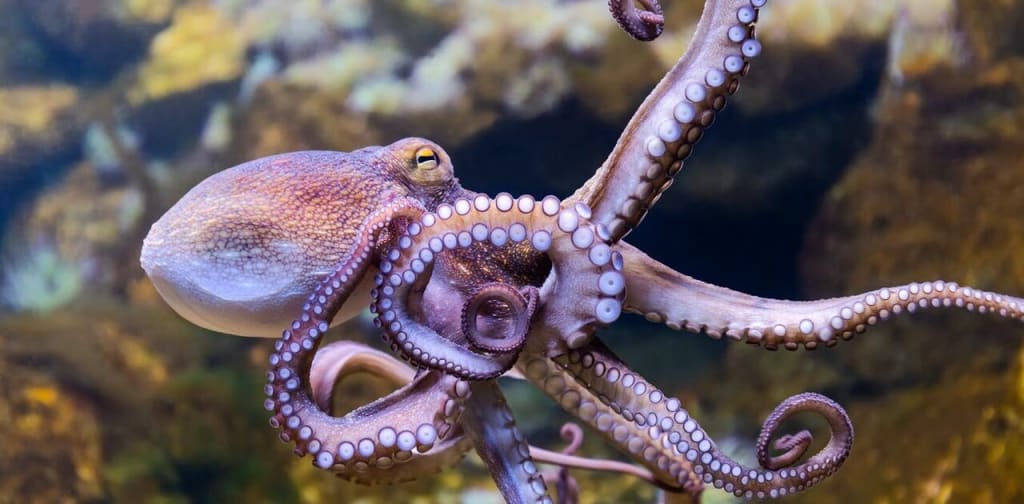Unveiling the Extraordinary Biology of Octopuses
Octopuses

The octopus, a creature that belongs to a class of animals known as cephalopods, is as close to alien life as we may ever witness. These remarkable and bizarre creatures are among the most intelligent and mobile invertebrates. Found in oceans worldwide, they inhabit a wide range of environments, from deep-sea depths to kelp forests and coral reefs. The diversity of octopus species is as vast as the habitats they occupy, ranging from massive to minuscule, venomous to simply strange.
Octopuses possess an array of extraordinary features that set them apart. Their unique biology has astounded scientists, as they exhibit complex behaviors and possess a level of intelligence that rivals many vertebrates. Surprisingly, most of their 500 million neurons are not concentrated in their brains but distributed throughout their eight arms. These arms can not only touch and taste but even exhibit a form of independent thought. Octopuses have left researchers awestruck by their ability to evolve such sophisticated behaviors in a way that is entirely distinct from other intelligent creatures.
These fascinating creatures have existed for over 500 million years, predating the appearance of fish, reptiles, and mammals on Earth. Their early ancestors were small and had shells for protection as they crawled along the ocean floor. However, approximately 140 million years ago, the lineage that gave rise to the octopus shed their shells, rendering them nimble and agile but also vulnerable. Surprisingly, their soft-bodied nature became their advantage, allowing them to squeeze through tiny crevices and hide from predators. But their evolution didn't stop there.
Octopuses became masters of disguise, capable of rapidly changing colors and textures to blend seamlessly with their surroundings. Their camouflage is a result of sophisticated tissues and organs, such as chromatophores, which contain pigment-filled sacks that can stretch and reveal different colors. Reflective structures called erytophores and lucifers further enhance their ability to mimic their environment, while the manipulation of skin textures through papillae helps them match even the smallest details of their surroundings. Their control over these camouflage properties is nothing short of astonishing, with octopuses able to modify their appearance within milliseconds, making them virtually invisible to predators and prey alike.
Contrary to popular belief, octopuses are thought to be colorblind. Yet, they can match colors they can't even see. Recent discoveries revealed that the skin of an octopus is light-sensitive, allowing it to respond to stimuli and change the shape of its chromatophores. This discovery suggests that octopuses can "see" with their skin, utilizing photoreceptor genes and their large, complex brains to control their color-changing abilities. The neural control of chromatophores gives octopuses the ability to react quickly and make decisions based on their environment. It's as if they can think and perceive not only through their eyes and brain but also throughout their entire body.
Octopuses possess an extensive nervous system, consisting of approximately half a billion neurons, comparable to many vertebrates. These neurons are not only located in their brains but also distributed throughout their eight arms. This unique neural layout allows the arms to exhibit a level of autonomy, granting the octopus a distributed intelligence system. Observations have shown that severed octopus arms can still respond to stimuli and make decisions independently, making them one of the fastest-reacting animals on Earth. The blurred lines between brain and body in octopuses challenge our traditional understanding of intelligence and cognition.
In addition to their camouflage and intelligence, octopuses are known for their exceptional problem-solving abilities. They can solve puzzles, manipulate objects, and even exhibit curiosity and playfulness. While it is challenging to quantify intelligence in octopuses as we do with standardized tests for humans, their behaviors and abilities suggest a level of intelligence that is both remarkable and distinct from our own.
Studying octopuses not only unveils the incredible depths of their biology but also offers insights into our own minds. These creatures evolved intelligence and complex behaviors in a way that is entirely separate from vertebrates like us. Their alien-like biology and remarkable intelligence continue to captivate scientists, providing a window into the possibilities of life and cognition on Earth and beyond.





Comments
There are no comments for this story
Be the first to respond and start the conversation.